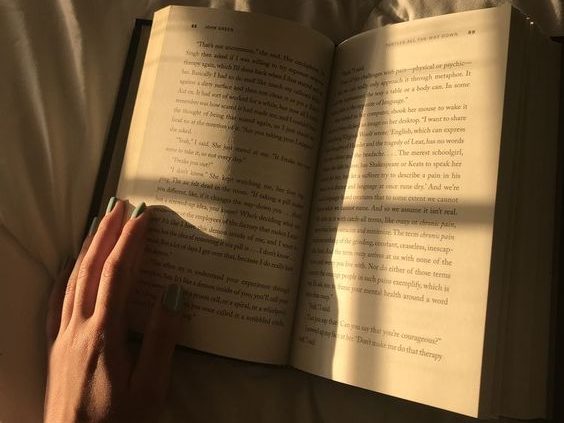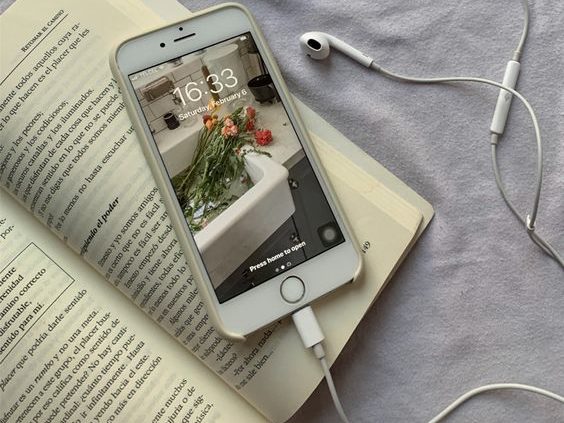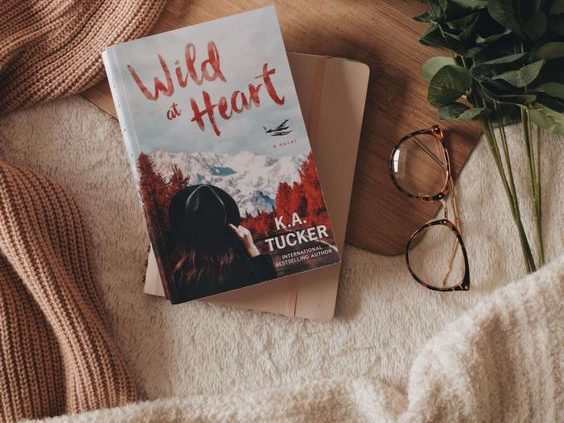12 Tips for Reading Faster
Books are a treasure trove of knowledge and wisdom. The best way to get the most out of books is to read them.
Admittedly, reading does take a lot of time and energy, but fortunately, there is a hack to make the process quick and easy. Simply try these eight hacks to read more than you ever thought possible.
Read a lot of books at once
Though seemingly counterintuitive, the most effective way to read more is to have various books around you. Feel free to delve into three to five different times at the same time.

Source: Oddysey/ Pinterest
For instance, you may have a historical book beside you as well as a true-crime novel. A sci-fi book and a biography may also be by your bedside. You can read one book for a few minutes and another book for fifteen minutes. More choices mean more opportunities to figure out what you like and dislike, and you can move on to something light when your brain has had enough dense material before bed.
Try audiobooks or eBooks
Try different book formats to figure out what type is most suitable for you. Maybe a hardback is difficult to carry around and you would prefer a light paperback. Either way, make sure you discover what works best for you.

You can also try eBooks. Numerous e-readers have lights already built-in to allow you to read conveniently at night. Plus, they are compact and easy to carry. Audiobooks are a great answer when you want to walk in the woods or drive while also getting some ‘reading’ done.
Say no to uninspiring books
Make sure to choose books that are sure to inspire you. What might be boring for one person could spark passion in another. Choose texts that resonate with you. Just because it’s a classic or popular doesn’t mean it’s right for you. Select a book that piques your interest.

Books must make you cry, think, or laugh. It should also prompt you to keep turning the page. Stick with books that engage you.
Stop using your phone
Smartphones serve as a barrier to reading. It’s easier to watch a video or jump into an entertaining app than to read. Instant gratification is easier to achieve on a phone than by reading tons of words. But reading is a better use of your time than watching mindless, time-wasting drivel.

Checking social media is also more tempting than flipping pages of books. Best to put away your phone so you can resist the call to scroll.
Patience is key
If you are not a fan of reading, it may be challenging for you to start a new habit. You can manage your expectations and start slow. Do not expect to complete the last five decades of classic novels in a week. All you need to do is find a book you love and start to read a page a day.

After a month or two, you will be surprised to see you have amassed a collection of reading materials. Enjoy the process as much as you can.
Set specific reading schedules
Never underestimate the power of scheduling. The moment you note down an event on a calendar, your brain will figure out a way to show up and do it. The same applies when you schedule at least thirty minutes of reading.

Choose to read before the day starts or after the day ends. You can also schedule a short time to read during lunch. Reading definitely beats scrolling aimlessly through your social media.
Read short stories
The best way to avoid feeling overwhelmed is to read short books. Try not to start off with 4,000 page books. Be realistic. Read only those you can handle.
.

Focus on short stories or brief essays. Usually, these consist of 10,000 words or less. On average, a reader can get through more than 200 words per minute
Create a comfortable reading environment
There is a reason why libraries are intentionally made to be silent reading spaces. Reading requires concentration. It is difficult to understand what you are reading if you’re in a noisy environment. Loud talking or blaring music is not conducive to reading.

Help yourself be in the mood to read. Make space for it. Place ambient light in a room or play light music. Keep the room clean, cool, and cozy.
Prioritize reading over other tasks
A lot of people love binge-watching their favorite TV series on Netflix at the end of the day. As with most things in life, moderation is key. If you find yourself doing this every single day, consider skipping just one day. Then, another.

What’s great about most TV shows is that the story is based on books. Therefore, if you like the TV version of the story, why not give the books a try? For example, sit back and binge-watch Lord of the Rings a few days a week and then read the novels the rest of the time.
Make reading social
Although reading is mostly a solitary activity, it can help to build a community aspect into it. The social network Goodreads is great because it provides a place where readers can share reviews and recommend other books.

Another option is to join book clubs. These can be in-person book clubs nearby your house, or they can be online book clubs that meet every month or so. Chatting about a book with others can really help you appreciate (and remember) aspects of the book you wouldn’t otherwise. Plus, the banter in between the book talk is fun, too!
Set reading goals
Setting and keeping track of goals can help people do everything from getting healthier to saving money to reading more. There’s something immensely satisfying about setting and achieving a goal. To apply that to reading, write down a daily, monthly, or yearly reading goal.

Or, do all three. Set a daily goal of reading for 30 minutes each day, a monthly goal of one to two books a month, and a yearly goal of 12 to 24 books a year. Whatever the specifics, writing it down and tracking your progress can provide an incentive to read more.
Search the “best of” lists
Trying to settle on what to read next is a daunting task. With a few hundred thousand books coming out each year, it can be difficult (and stressful) to pick the right one. The good news is you don’t have to do it on your own.

There’s a whole array of sites dedicated to promoting the best books of the year. The New York Times best sellers list is the most popular, but it’s far from the only one. Another option is Goodreads. It has a community-created list of the best books of the year.
